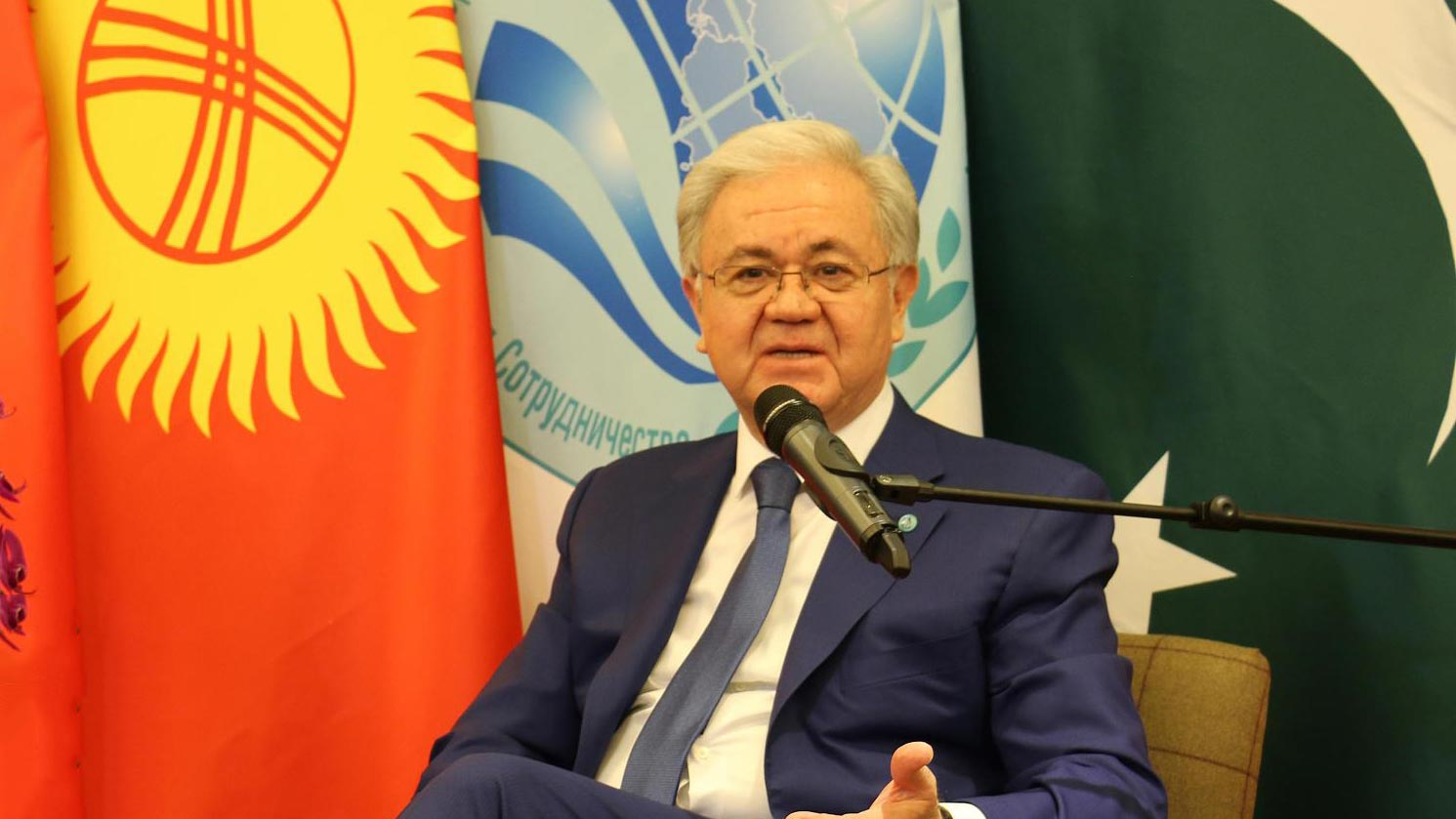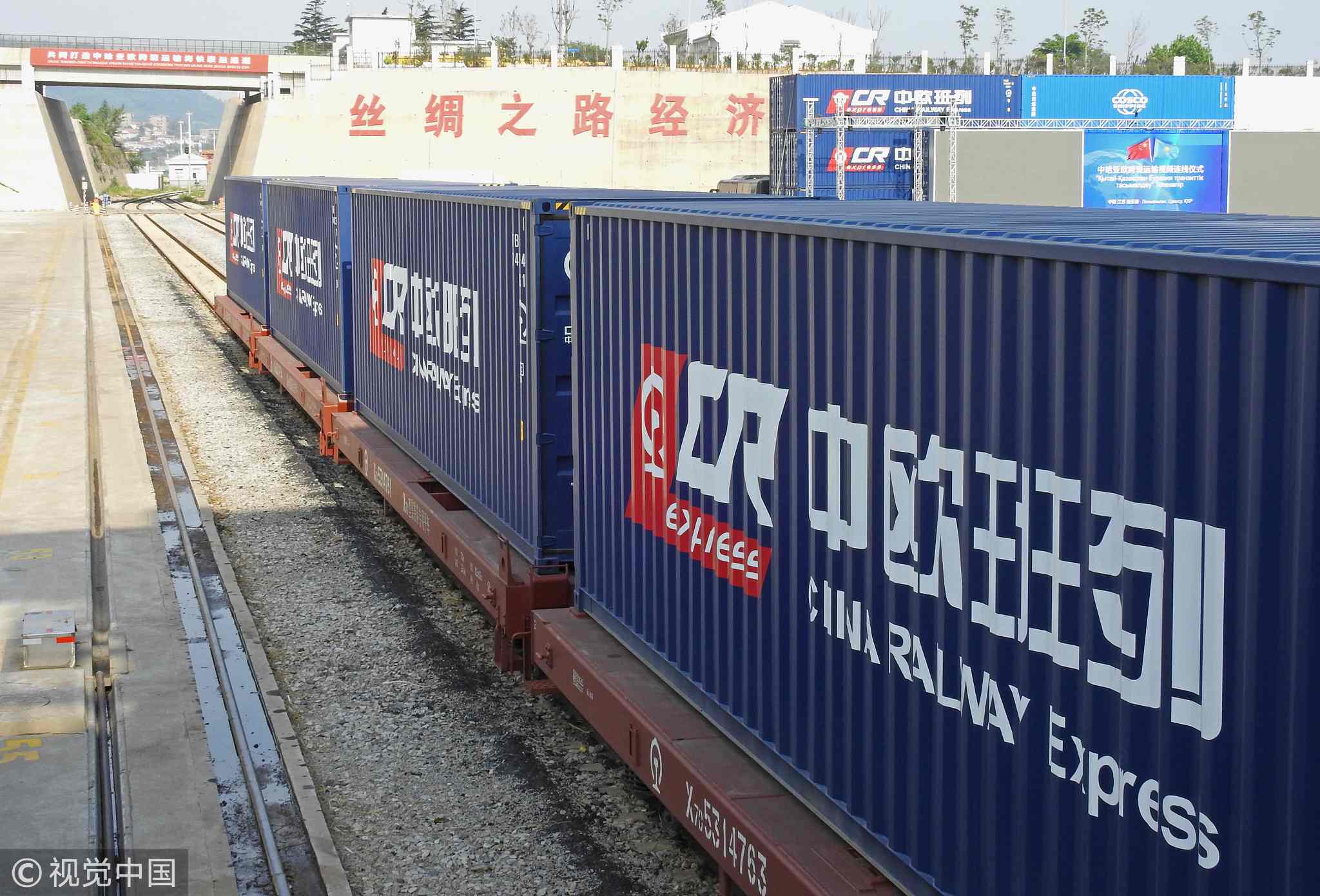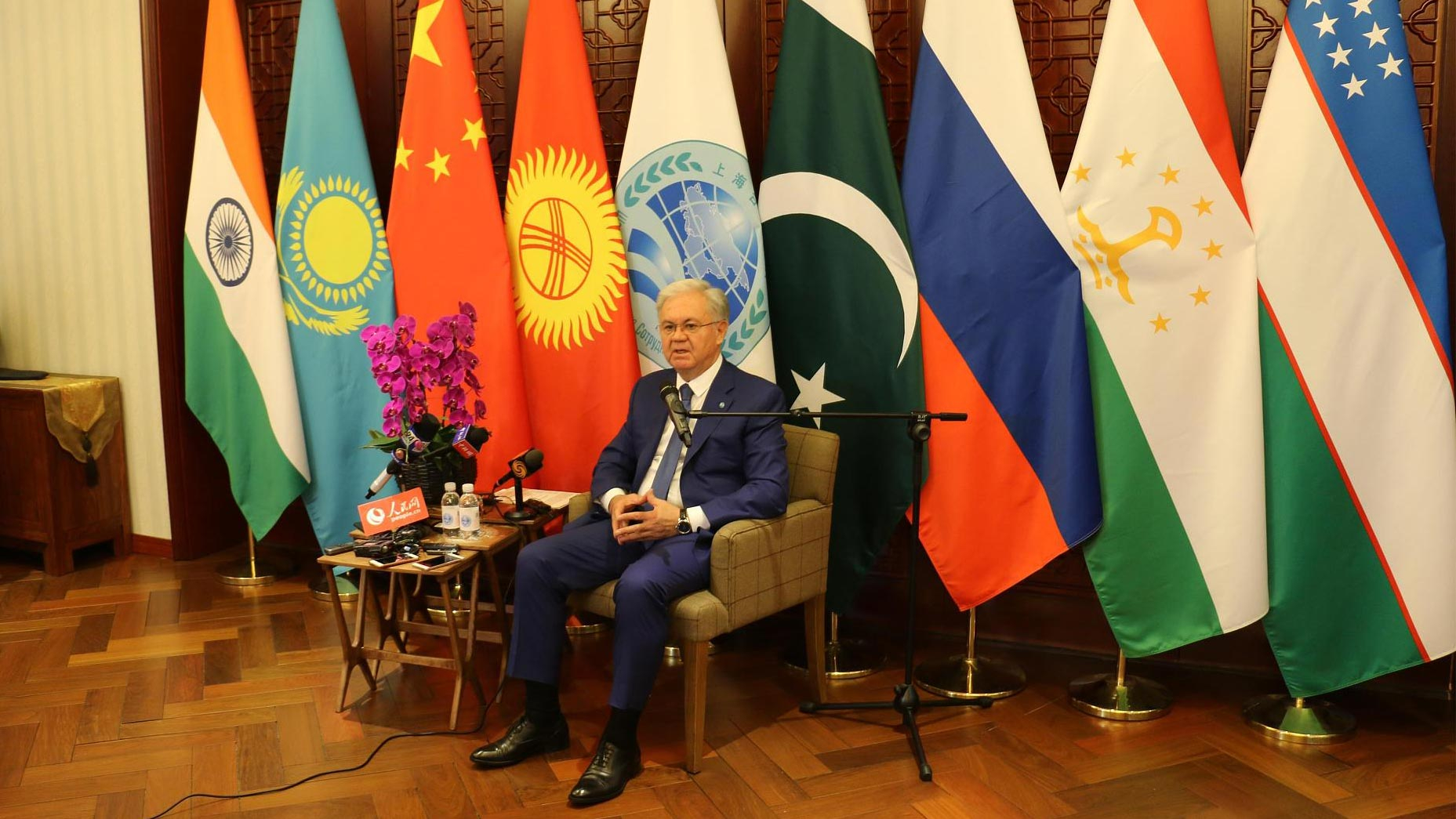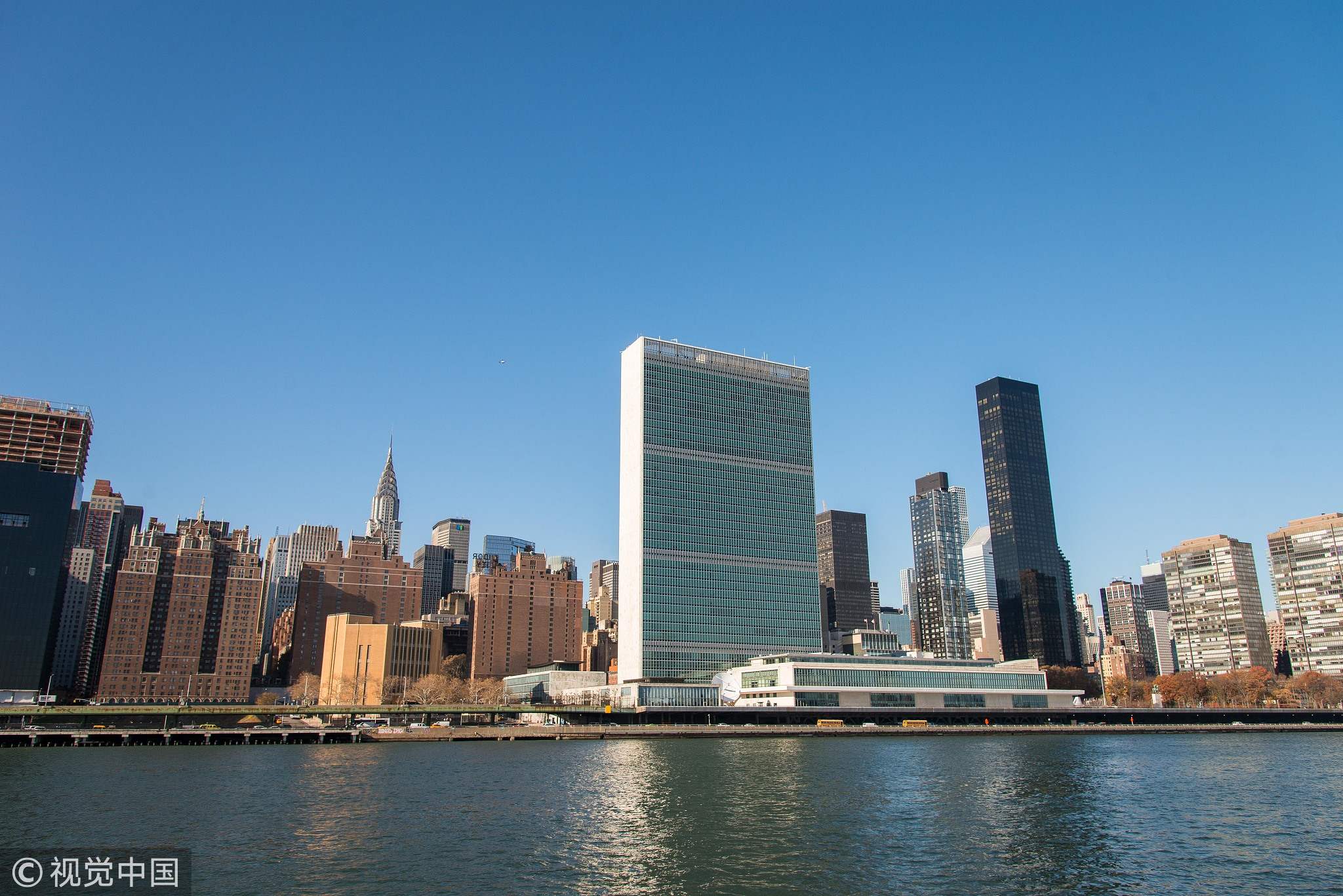
Opinions
09:25, 09-Jun-2018
Rashid Alimov: A coming-of-age story of the largest Eurasian consortium
By CGTN's Wang Xiaonan
01:29

Editor's note: The article is based on an interview with SCO Secretary-General Rashid Alimov.
"The Shanghai Cooperation Organization (SCO) has its uniqueness and diversity in that it knits countries, big and small, rich and poor, strong and weak, together," said SCO Secretary-General Rashid Alimov.
Stretching the tapestry of most Eurasian nations, home to 44 percent of the world population, the mushrooming transregional organization has been unswerving in deepening neighborly friendship. The spirit is fully elaborated on in the SCO Charter and all members are aware of the immorality of blighting each other's interests.
Token of common development
Though they are in different development stages in economy and military strength, the SCO members stand ready to help each other in seeking common growth. Digits are not important to them, but the process and outcomes of pragmatic cooperation.
"We never eye growth rates but consider the results of common development," Alimov told CGTN during an interview ahead of the first “Eurasian eight” summit.
Since the establishment of the SCO as the Shanghai Five 17 years ago, its expanding members have been enjoying the dividends of common development in both hard and soft power.
Back in 2001, there were almost no flights among these SCO countries. For instance, China and Kazakhstan only had chartered flights at the time.
But now the desolate scenario has changed significantly thanks to heavy infrastructure input: Massive construction of transportation networks connected by highways, rail roads and air routes has bridged the distance. The air passenger volume within the SCO members has increased 12 times compared with 17 years ago.

A China-Europe railway express train is setting off from China-Kazakh logistics base in Lianyungang, east China's Jiangsu Province, June 8, 2017. /VCG Photo
A China-Europe railway express train is setting off from China-Kazakh logistics base in Lianyungang, east China's Jiangsu Province, June 8, 2017. /VCG Photo
Economy, though deemed by many as the least developed part of the cooperation within this transregional security union, has also gained an upbeat growth momentum. China has long been an enormous exporter to other member states, which has elicited complaints from locals and suspicion from the West that the SCO works as an anti-Western bloc under the auspices of Beijing.
Nonetheless, striking trade balance is a matter of time given the sincerity and reciprocity of SCO nations. "The latest statistics show that China has more imports from other SCO members than its exports to them," Alimov said.
Now nations within the SCO have become the most attractive investment destinations. In 2016, its investment in its member states accounted for 11.5 percent. And the GDP growth rate of the member states, which registered at 4.4 percent in 2016, was twice the global average.
The gold reserve of its members currently takes up around 15 percent of the world total.
An increase in culture and humanitarian exchanges is another fortuitous achievement for the SCO, which was originally designed to appease tensions deriving from border security threats.
"In 2016, a staggering 200 million tourists visited SCO member states, bringing about 250 billion US dollars." Alimov noted that these colossal numbers demonstrate that the region enjoys quite steady development.
01:38

Engaging the world
"While seeking to pursue common development, we are not reclusive. Instead, we are actively engaging the rest of the world in an open posture," Alimov told CGTN.
It's noted that the secretary-general was invited to the ASEAN Foreign Ministers' Meeting and the ASEAN Summit last year, the first of its kind in the history of the SCO.
The SCO, evolving incredibly fast toward becoming the largest regional consortium, is playing an increasingly salient role in Eurasian integration by beefing up ties with other regional organizations.
Alimov is slated to attend a full array of meetings with officials from the Commonwealth of Independent States, the Collective Security Treaty Organization and the Conference on Interaction and Confidence-Building Measures in Asia.

November 29, 2017: UN headquarters in New York City, US. /VCG Photo
November 29, 2017: UN headquarters in New York City, US. /VCG Photo
On June 12, he will head to New York City for a meeting with UN Secretary-General António Guterres.
"Regarding our development plans, deepening internal development within the SCO framework comes first, which of course will provide more possibilities for the development of our partners," the former Tajik ambassador to China added.
The prospects for the SCO are bright, but the road will be bumpy, with more difficulties expected ahead in reaching consensuses given membership expansion and constant skepticism from an acentric West, as well as concerns over de-globalization or re-globalization.
Nonetheless, the Shanghai Spirit, featuring mutual trust, equality, benefits, respect for diverse civilizations and pursuit of shared development, will, as always, pool all SCO countries together and dig into their development potential. Its position will only grow more eminent as it wields greater influence on the world stage.
(The videos were produced by CGTN’s Geng Zhibin. CGTN’s Abhishek G Bhaya and Wang Yujuan also contributed to the story.)

SITEMAP
Copyright © 2018 CGTN. Beijing ICP prepared NO.16065310-3
Copyright © 2018 CGTN. Beijing ICP prepared NO.16065310-3